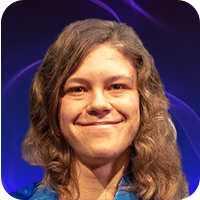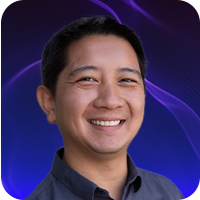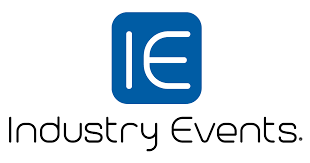
The Agentic AI Summit is a 3-Week virtual event designed for builders, engineers, and business professionals. Learn how to design, deploy, and scale autonomous AI agents through hands-on workshops and expert-led sessions
Whether you're an AI builder, a developer, or a business leader seeking foundational knowledge, we have tracks to prepare you for an Agentic future.


Theme: Build Your First Agent – Tools, Prompts, and Use Cases

Theme: Understanding AI Agents and Their Business Impact
Business sessions
Hands-on sessions

Theme: Advanced Patterns and Industry Solutions
Business sessions
Dr. Ali Arsanjani - Director of Applied AI Engineering | Head of AI Center of Excellence | Google Cloud
Daniel Fink - Associate Vice President — Platform Engineering | Cognizant
Hands-on sessions
Josh Reini - Developer Advocate | Snowflake
Agents often fail in ways you can’t see. They could return a final answer while taking a broken path: drifting from the goal, making irrational plan jumps, or misusing tools. Was the goal achieved efficiently? Did the plan make sense? Were the right tools used? Did the agent follow through?
These hidden mistakes silently rack up compute costs, spike latency, and cause brittle behavior that collapses in production. Traditional evals won’t flag any of it because they only check the output, not the decisions that produced it.
This session introduces the Agent GPA (Goal-Plan-Action) framework, available in the open-source TruLens library. Benchmark tests show the Agent GPA framework consistently outperformed standard LLM evaluators, giving teams scalable and trustworthy insight into agent behavior.
95% error detection (vs. 55% baseline methods)
86% accuracy in pinpointing where an error occurred (vs. 49% baseline methods)
Across all error severities, matched 100% of human-labeled failures from TRAIL/GAIA dataset
You’ll learn how to inspect an agent’s reasoning steps, detect issues like hallucinations, bad tool calls, and missed actions, and leave knowing how to make your agent truly production-ready.
João (Joe) Moura - CEO | CrewAI
In this workshop, you’ll learn how to build a simple Crew that can review your code, flag potential issues, and recommend improvements to boost overall quality. We’ll start with a 15-minute overview of Crew concepts and a quick setup walkthrough. Then we’ll spend the next 40 minutes hands-on, building a QA assistant you can adapt and use in your own day-to-day development workflow. By the end, you’ll leave with a working foundation and clear next steps for extending it to your projects.
Holt Skinner - Developer Advocate | Google Cloud AI
This course provides a practical introduction to the Agent2Agent (A2A) protocol. You'll learn how to build AI agents that can discover, communicate, and collaborate with other agents, regardless of their underlying framework. This course is for individuals familiar with Gen AI concepts.
Kyle Stratis - Founder | Stratis Data Labs
Modern AI applications are evolving beyond simple question-answering systems into sophisticated agents capable of interacting with external tools, databases, and services. This hands-on workshop bridges the gap between traditional LLM-powered applications and truly agentic systems by implementing the Model Context Protocol (MCP) in Python.
Participants will transform a basic intelligent application into a powerful agentic system capable of autonomous tool usage and data access. Through practical implementation, attendees will learn to integrate MCP clients, enabling their AI applications to seamlessly connect with external resources, execute complex workflows, and autonomously call tools.
The session targets software engineers, AI practitioners, and technical leads working in industries where AI automation can drive significant business value, including financial services, healthcare technology, e-commerce, and more. You'll gain hands-on experience with MCP, learn architectural patterns for agentic AI systems, and understand how to design applications that can act rather than just respond.
By the completion of the workshop, participants will have built a working MCP-enabled application and possess the technical knowledge to implement similar systems in their organizations. You'll leave with practical code examples, architectural blueprints, and the confidence to transform existing intelligent applications into autonomous agents that can take meaningful action on behalf of users.
Harpreet Sahota - Hacker-in-Residence | Voxel51
This workshop provides a comprehensive, hands-on introduction to building GUI agents—AI systems that can understand and interact with graphical user interfaces. Participants will begin by exploring the landscape of GUI agent research, understanding why standard computer vision approaches fail on interface tasks and examining influential datasets and models that have shaped the field. The workshop then transitions to practical dataset creation, where attendees will build production-ready GUI datasets using FiftyOne, learning specialized annotation strategies and techniques for scaling data collection. Finally, participants will fine-tune foundation models like Qwen2.5-VL into GUI specialists, implementing training pipelines that handle coordinate prediction and multi-step reasoning. By the end, attendees will have both theoretical understanding and practical skills to contribute to the rapidly evolving field of GUI automation, including a complete dataset and a trained model ready for real-world deployment.
Shane Murray, Field CTO & Head of AI Strategy | Monte Carlo
Nearly every data organization is under pressure to deploy Agentic AI initiatives, but where do they start? What do data teams actually need to know before they begin?
Join Shane Murray, Field CTO & Head of AI at Monte Carlo, as he shares the takeaways his team has learned in the Agentic AI development process. Attendees will walk away with a deeper understanding of best practices for Agentic AI product research, validations, task splitting, workflows, security, and perhaps the most difficult, knowing when to be patient.
Zain Hasan, PhD - Staff AI/ML Engineer - DevRel | Together AI

Theme: Production Deployment and Business Transformation
Business sessions
Leonardo De Marchi - VP of Labs | Thomson Reuters
Manoj Saxena - Founder & CEO | Trustwise
Sammy Assefa - Senior VP, Head of AI | U.S. Bank
As agentic AI moves from analysis to execution, ROI shifts from model level metrics to enterprise productivity and realized business value. Impact increasingly comes from AI systems operating continuously across workflows, accelerating decisions and actions, and improving how work gets done at scale. This fireside chat reframes agentic AI ROI around measurable gains in operational efficiency, execution speed, quality of outcomes, and economic lift, rather than pilot success or technical benchmarks. The discussion focuses on how organizations identify, measure, and sustain value once AI functions as digital labor inside core business processes.
The second half explores what determines whether productivity gains compound or stall over time. Sustained impact depends on keeping agentic systems aligned with business intent, cost boundaries, and governance expectations while they operate. We will discuss how enterprises track value realization alongside control signals such as agent drift, inefficiency, and operational friction, and why Trust Posture Management becomes essential once AI runs continuously. The goal is to help teams treat AI initiatives as managed operating systems rather than static deployments.
Participants leave with a practical framework for evaluating agentic AI investments based on sustained productivity, defensible value creation, and readiness to scale.
Ivan Lee - CEO | Datasaur
For 20 years, SaaS was simple: build once, sell 10,000 times, and scale to $100M+ on the back of a generic product and a slick UI. AI agents quietly break that model.
In an agent-native world, the real IP isn’t the app—it’s your workflows. The most valuable agents will be deeply wired into an individual organization’s data, permissions, edge cases, and “unwritten rules.” That means every serious deployment becomes bespoke: custom integrations, domain-specific behavior, and guardrails that map to your risk posture. And if an agent genuinely captures your secret sauce, you’re not going to let a vendor productize it and sell it to your competitors.
This session will cover:
Why “one-size-fits-most” SaaS UIs give way to invisible, workflow-native agents
How agent customization, not features, becomes the core value driver
What this shift means for software buyers (owning your workflows) and vendors (moving from products to primitives, platforms, and services)
Strategic implications for valuation, defensibility, and GTM in a world where no two agents look the same
If your roadmap still assumes classic SaaS economics, you’re already behind.
Hands-on sessions
Thierry Damiba - Developer Advocate | Qdrant
Claire Longo - AI Researcher | Comet
AI Agents promise massive efficiency gains, but building them to take optimal actions and continuously improve over time is still extremely difficult. Many Agent systems today remain surprisingly static. Their behavior is often bottlenecked by brittle, manually written prompts created through trial-and-error, making them fragile and difficult to generalize to real-world data. As LLMs evolve into multi-step Agents equipped with tools, memory, and retrieval, the real challenge is no longer creative prompt engineering, it’s context management and automated optimization.
This workshop teaches you how to build AI Agents that can optimize themselves. You’ll implement a lightweight Agent and integrate automatic Prompt Optimization using the Opik Agent Optimizer SDK. We’ll discuss and compare optimization strategies from GEPA to the new Hierarchical Adaptive Prompt Optimizer (HAPO) to show how these algorithms can balance latency, cost, and accuracy.
By the end, you’ll understand why the future of Agentic AI isn’t about writing better prompts, it’s about designing optimization loops and collecting high-quality feedback datasets. You’ll see how leading AI teams can build self-improving Agents and how you can adopt these techniques in your own work today with completely open-source tools.
Amanda Milberg - Principal Solutions Engineer | Doubleword
When you hear the word ""scale"" in AI, the conversation often focuses on bigger models and more GPUs. But what if you could scale intelligence by doing more inference, strategically?
With batch processing, inference becomes more affordable, meaning entirely new agent architectures become viable. You can afford to evaluate everything instead of sampling. You can afford multi-pass pipelines with specialized agents. You can afford to learn from mistakes and improve over time.
In this hands-on workshop, we'll explore how abundant inference fundamentally changes what's possible with AI agents. We'll build production-ready systems using open-source models that demonstrate key patterns: agents that learn from user feedback to improve their own behavior and agents that autonomously decide which tools to use for investigation.
Through live coding and real-world examples, you'll learn to architect systems where intelligence scales through volume and learning, not just model size. You'll leave with working code and a new mental model: the future of agentic AI isn't about having the smartest model, it's about building systems smart enough to use abundant inference strategically.
Greg Michaelson - Chief Product Officer and Co-Founder | Zerve
Cloud cost optimization is rarely about a single knob. It is about balancing demand, commitments, risk, and constraints.In this live code-along, Greg will build a cloud cost optimization simulator from scratch using synthetic data and you will code along with him. We'll generate a realistic workload, model on-demand, reserved, and spot capacity, define cost and risk tradeoffs, and use heuristic search to find the lowest-cost policy that still meets performance and reliability goals.You will see how real-world optimization problems are formulated, simulated, and solved end to end using Zerve’s notebook view and agentic workflow. No prior optimization experience required.
Sinan Ozdemir - AI Author and Educator
The hype cycle around AI agents has reached a fever pitch but the gap between impressive demos and measurable business outcomes remains wide. In this hands-on workshop, we cut through the noise to focus on what actually matters: building agentic AI systems that deliver quantifiable ROI.
We'll start by establishing a practical framework for evaluating where agents make sense versus where simpler solutions win. Not every workflow benefits from autonomy, and understanding this distinction is the difference between a successful deployment and an expensive experiment. From there, we'll dive into the architecture of production-ready agent systems covering tool selection, memory design, and the critical decision points that determine whether your agent becomes a reliable collaborator or an unpredictable liability.
Through live code walkthroughs and case studies drawn from real enterprise deployments, you'll see how to measure agent performance beyond accuracy: latency, cost-per-task, error recovery rates, and the metrics that actually correlate with business value. We'll tackle the hard problems: hallucination mitigation, graceful failure modes, and human-in-the-loop design patterns that keep agents useful without requiring constant supervision.
Attendees will leave with actionable blueprints for scoping agent projects, a framework for calculating expected ROI before building, and practical techniques for optimizing agents in production. Whether you're a developer deploying your first agent, a data scientist exploring multi-agent architectures, or a technical leader making build-vs-buy decisions, this workshop provides the tools to move from prototype to measurable impact.
Sanyam Bhutani - Partner Engineer
Generative AI Engineer | Meta
We will learn how to apply the best practices of Reinforcement Learning in a hands-on workshop where we will use OpenEnv from PyTorch as well as the latest developments in the field to train our RL agent.
The session will cover case studies and best practices of training AI Agents in the real world along with the latest developments in academia in a extremely hands on session
Sydney Runkle - Software Engineer | LangChain
This session introduces Deep Agents, an open-source agent harness built on LangChain and LangGraph that brings professional-grade agentic capabilities to your Python applications.Deep Agents implements three core principles seen in agent harnesses like Claude Code: structured planning (before task execution), computer access (filesystem and shell operations), and sub-agent delegation (for isolated, parallel task execution).In this session, we'll explore:The middleware architecture that powers Deep Agents' built-in tools (todo management, file operations, sub-agent spawning)How to extend agents with custom models, tools, and instructionsPractical patterns for human-in-the-loop workflows and long-term memoryI'm looking forward to having you join me on this deep dive into deep agents!






















%20Moura.png)






Free with Any Paid ODSC AI East 2026 Conference Pass; Find more details on the Conference on https://odsc.ai/east
$1,500+ in credits to multiple AI platforms . Full access to all 3 weeks of expert-led training, interactive workshops, and business talks. Live and on-demand access to all sessions. Participation in community channels (Slack/Discord). Certification or digital badge upon completion.
Free access to Invited speaker sessions, Talks & Office hours. No access to Training or Hands-On Sessions & Recordings
Week 1: Foundations of Agentic AI – Learn the building blocks of autonomous agents, including core architectures, planning methods, memory systems, and leading development frameworks.
Week 2: Advanced Techniques and Industry Solutions – Dive into advanced reasoning, multi-agent coordination, tool chaining, self-healing workflows, and emerging security challenges.
Week 3: Production Deployment and Business Transformation – Focus on real-world applications with sessions on agent evaluation, reliability, deployment strategies, and cumulative demo showcases.
Learn step-by-step, guided by experts.
Interactive Workshops: Participate in live, expert-led sessions where you’ll build real agentic systems.
Cutting-Edge Tools:
Experiment with the latest agent frameworks, memory systems, and orchestration platforms.
Exclusive Builder Credits: Receive free credits from partners to immediately start building and scaling your own autonomous AI agents.
Dive into live, expert-led sessions where you’ll work on real-world AI challenges and learn by doing
Expert-Led Sessions
Learn directly from pioneers in autonomous agents, multi-agent coordination, and agentic workflows.
Real-World Insights:
Engage in live Q&A, hands-on demos, and hear from innovators behind today’s leading agent technologies.
From Research to Deployment: Understand both cutting-edge research and practical deployment strategies for agentic AI.
Immediate Impact: Build, Deploy & Scale AI Agents with Credits
.png)
✔ Deploy real autonomous agents with no upfront cost
✔ Access premium APIs, frameworks, and cloud tools
✔ Experiment, build, and test in real-world environments
✔ Compete in build challenges and mini-hackathons
✔ Start building with industry-grade platforms — immediately and for free
Featured Topics
TECHNICAL TRACK
AI Agent Architecture Fundamentals
Popular AI Agent Frameworks
Agent Memory Systems
Multi-Agent Systems
Advanced RAG for Agents
Agent Evaluation & Testing
Tool Use & API Integration
Multimodal Agents
AI Agent Observability
Production-Ready Agent Systems
Real-Time Agents & Live Context Pipelines
Autonomous Coding Agents & AI Engineering Assistants
BUSINESS TRACK
Getting Started with Agentic AI in the Enterprise
Governance, Risk & Responsible Agent Deployment
AI Agents in Operations
Designing Agentic Workflows for Operational Efficiency
Enterprise Adoption Roadmaps for Agentic AI
Measuring Business Impact & ROI of Agentic AI
Building AI-Augmented Teams & Redefining Roles in the Agent Era
Scaling AI Agent Adoption
Future Trends & Strategy
Who Should Attend

✔ AI Engineer/ Developer
✔ Machine Learning Engineer
✔ Data Scientist
✔ Tech Lead Architect
✔ or any technical professional building AI-powered systems

✔ Startup Founder/ Product Leader
✔ Business Process Analyst
✔Executive / Non-Technical Founder
✔ AI Enthusiasts
✔ or any leader focused on driving business impact with intelligent automation
Agentic AI Partners

%20(1).png)
.svg)

Media Partners














Reach Thousands of AI Professionals: Extend your influence to our vast network through our global conferences, newsletter, meetups, webinars, and more.
Alternatively, if you are interested in sponsorship, please contact partners@odsc.com

✔ Expanded Training: Over 40+ Hands-on Tutorials, Workshops, and training sessions
✔ Leading Experts: Taught by top instructors and experienced practitioners in AI and ML
✔ Breadth and depth: Beginner to Expert season ensures we have all levels covered
Discover a dynamic space where connections fuel innovation. The Agentic AI Summit offers unparalleled networking opportunities with a global community of engineers, data scientists, and AI leaders. Engage in insightful conversations, exchange expertise, and collaborate with professionals who share your vision for advancing AI. This is more than networking—it’s your chance to join a thriving space of creators and problem-solvers driving the future of technology.

.png)

